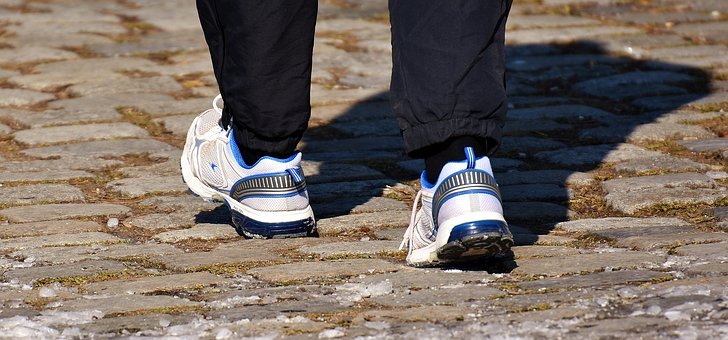I’ve always been obsessed with the idea of efficiency. For example, whenever I walked anywhere I always took the shortest route I could. Maybe I was just physically lazy. But now I’ve replaced that habit.
Last year, after I had surgery on my spine, my son, an MD, strongly recommended that I walk briskly for 20 to 30 minutes every day. “Dad,” he warned, “at your age you have to exercise a least six days a week.” Ugh.
I felt intimidated. For most of my life I’ve held the belief that the shortest distance between two points is simply to sit in one place. After all, I’m going to end up where I started anyway, so why not just stay where I am, or at least combine trips, or, better yet, persuade myself that I really don’t need what I thought I did anyway.
But in deference to my son, and in the interest of good health, I reluctantly began to walk 3,000 steps a day. Before last year, I hadn’t even realized that my iPhone kept track of every step I took. In 2018 I averaged 2,635 steps a day. In 2019 my average was 2,229 steps even though, after my surgery, I hardly walked at all for three months.
But I’m delighted to share that in 2020 I’m up to 4,791 steps a day. Now I make a game of it. This month I reached a pinnacle of 7,000 steps a day. That’s about the maximum I can regularly sustain, but I’m optimistic that I will because I feel more energetic than I have in years.
To achieve this goal I’ve developed an entirely new mindset, discarding my tendency towards “efficiency” in favor of “effectiveness.”
Tonight I was waiting for Daveen to join me for dinner. She indicated that she would be ready in five minutes. Two years ago I would have simply sat at the table. But instead I took the opportunity to walk three laps (about 400 steps) around my house. Now I look for opportunities to walk, rather than opportunities to sit. And whenever I walk somewhere, I don’t take shortcuts because that’s no longer the point. Now I deliberately take “long cuts,” since the point is to gain more exercise.
That isn’t the only change I’ve applied in my life. Years ago my goal at work was to finish every project as quickly as I could. Today I work a little slower and the result is a lot better.
I know that eventually each of us will end up in the dustbin of history. But our lives take meaning from how we live in the moment. Accordingly, it seems that the shortest path to good health is to take a little longer, and the best way to accomplish a task is to work more deliberately.
This is why I now realize that longer is often shorter.
Enjoy your long, or short, week.
Alan



